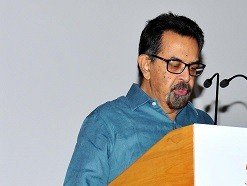A new fact sheet explores the status of weed genomics, what scientists are learning and the potential impact on future weed control.
The Weed Science Society of America (WSSA) released a new fact sheet that explores the status of weed genomics, what scientists are learning and the potential impact on future weed control.
To date scientists have mapped the genomes of six weeds known to cause significant crop losses, including horseweed, Palmer amaranth, waterhemp, smooth pigweed, red rice/feral rice, and kochia. Partial draft genomes are available for at least 35 additional weed species.
The goal of these gene mapping projects is to answer many of the big questions in weed science such as what makes a weed “weedy”? What is the genetic basis for herbicide resistance? Can we develop better-targeted weed treatments or alter weeds to make them easier to control?
Scientists say mapping weed genomes is especially complex due to the high level of repetition typically found in a weed’s DNA.
“It’s like trying to work on a puzzle made up largely of pieces that are precisely the same, but each occupying a unique place in the total picture,” says Eric Patterson, a weed geneticist at Michigan State University.
Sorting out the repetitive content can be time consuming and expensive, and it requires the right expertise and tools. Today, though, new technologies are reducing the cost of genome assembly and are helping weed scientists produce more complete and accurate maps of gene sequences.
In addition, efforts are underway to advance weed genomics through collaboration. One important example is the International Weed Genomics Consortium, an organization spearheaded by Todd Gaines of Colorado State University with support from weed science colleagues around the globe. Consortium members are working together to set priorities, share tools and resources, and build reference genomes for the world’s most troublesome weed species.
“By deepening our understanding of weeds, we hope to find ways to delay the evolution of resistance and to open the door to new, more sustainable approaches to integrated weed management,” Gaines says.
WSSA’s fact sheet:
- a) Scientists from the University of Illinois have used their understanding of Palmer amaranth genetics to develop a test that can rapidly screen seed mixtures to detect whether they contain seeds from this troublesome weed.
- b) Scientists at Rothamsted Research conduct a successful lab experiment using what they know about the blackgrass genome. They were able to silence specific genes and make herbicide-resistant blackgrass weeds susceptible to treatment.
A new fact sheet explores the status














